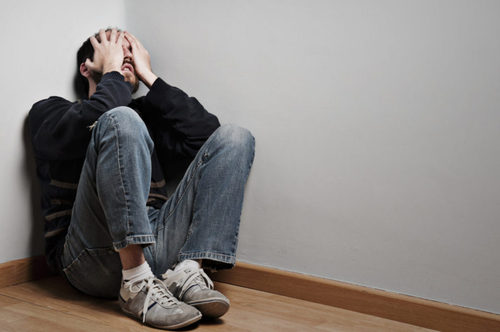 “When the enemy shall come in like a flood, the Spirit of the LORD shall lift up a standard against him.” Isaiah 59:19.
“When the enemy shall come in like a flood, the Spirit of the LORD shall lift up a standard against him.” Isaiah 59:19.
Are you having a crisis? Could it destroy you? Right now, you may not sure what tomorrow will bring.
On November 19, 2008, a Florida teenager committed suicide while connected to the Internet. Watchers egged him on. Hours later, after breaking into his apartment, medical authorities pronounced 19-year-old Abraham Biggs dead, perhaps a casualty of technological advances.
Maybe you can’t relate to the specifics of Abraham’s case, but you might understand his feelings. Here is a snapshot of a person in full-blown crisis, in this case, a young person whose world had evidently become unbearable. It doesn’t really matter what the reason, though, the feelings come out the same—anger, rejection, sorrow, fear, hatred, panic, numbness.
The word crisis comes to us from Latin. Hippocrates, the famous physician, gave it a specific medical meaning: the turning point in a disease. At a certain point, a sick person either loses all hope or they start getting better. A crisis is…when everything you have and are is threatened; when you think God hates you; when you don’t know who you are anymore; when you face losing your most meaningful relationships in life; when you think you have nothing to live for; when you can’t survive; when everything you thought you believed seems like a total waste.
The Bible is a book filled with people in crisis situations from captivity to torture and persecution. Today, ecological crises abound from oil spills to the plastic garbage tsunami. Hurricanes, tornadoes, wildfires and floods ravage the countryside. High crime rates, political conflict and economic crashes assault the population regularly. None of us can do much about local or global crises. But you can do something about the personal crisis you are having today. The question that you should be asking yourself is “How did I get here?” But it’s easier to say, “It doesn’t matter how I got here. Just get me out!” Until you know what happened, however, you are going to recycle back into the same crisis…or worse!
If you choose, you can deny the genesis of your problems. You can deflect fault and blame others—spouse, children, boss, teacher—anybody else but yourself. But, if you are in bondage to addictions or sinful patterns of behavior, don’t deceive yourself. Blame deepens the crisis. I often preach about the catalog of sins and transgressions—from lying to lust, from anger to adultery, from gambling to gluttony—not because I’m mad, but because people need to identify their spiritual slaveholders! Whatever sins you commit, you are in bondage to those sins!
If you are in crisis right now, stop looking for help from the wrong people and places. God has already illuminated your path to freedom. You can and must decide today that will give you true hope for survival. Accept the fact that God loves you and your life is worth living. Admit that God has been right all along. Quit fighting against God and make peace. Confess, repent and forsake your sin.
Yes, you will always live next door to failure, but you can slam the door to defeat. You can turn around by making four commitments today—to yourself and God: 1) I will not live in bondage; 2) I will no longer rebel against God; 3) I will deal with my guilt by the blood of Jesus; 4) I will transfer my shame to the cross.